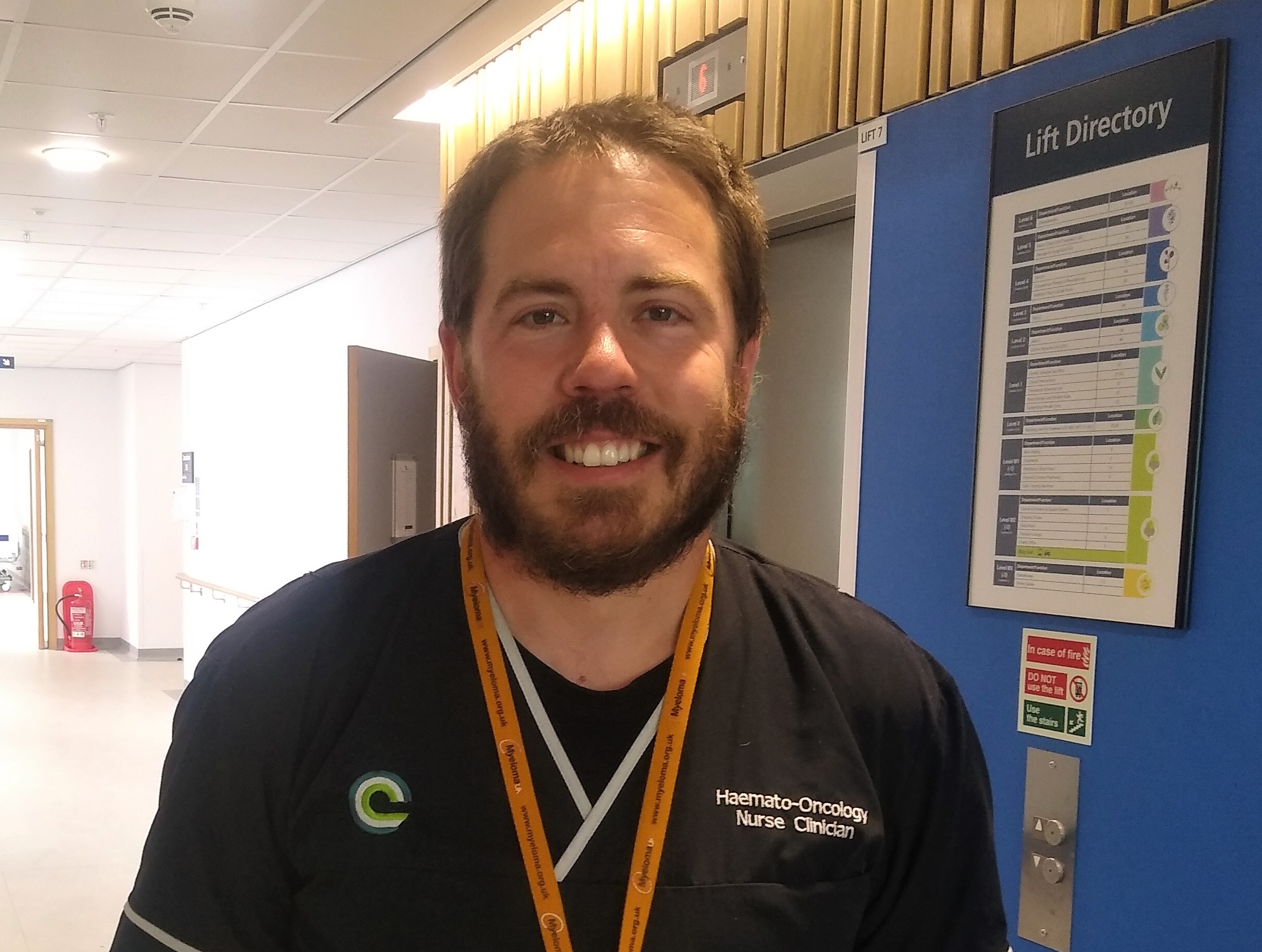Craig Simon, Haemato-Oncology Nurse Consultant

Growing up, I never thought about becoming a nurse. You get steered towards certain careers and I went to university to study medicine. I did three months and knew it wasn’t for me. It was the hardest decision to leave but I didn’t want to spend the next five years in lecture theatres – I wanted real work-based experience right away.
I wasn’t sure what to do next and then I thought about nursing. Nursing was great because you get that mix of being in university part of the time but also practical experience in a variety of hospitals. I did my degree in Liverpool and did placements in the Royal Liverpool, Whiston and Arrowe Park.
When I started my course I thought I wanted to specialise in surgical. Cancer nursing really wasn’t something I wanted to do. Then in my second year I did a placement in haematology on the stem cell transplant unit at the Royal Liverpool.
I thought it was going to be awful but I loved the fact that you really get to know patients and care for them over a long period of time. Obviously there was some upsetting stuff but you really built a rapport with patients. It wasn’t at all what I had expected and from then on I knew it was what I wanted to do.
All my electives were on the haemato-oncology (blood cancer) ward and the stem cell transplant unit and, after I qualified, I was lucky enough to get a job there straight away. I worked my way up quite quickly. I was a Band 5 for around 18 to 24 months and then worked on the Haematology day unit as deputy ward manager.
From there, I became a specialist nurse in immunology, looking after patients with primary immune deficiencies. In nursing, it can be good to get experience in other fields as career development and this was a brand new role so I got to develop and build a service helping patients on lifelong immunoglobulin replacement treatment to have their injections outside of hospital and do it themselves. I was there for five years and the service is still going strong so I’m really proud of that legacy.
Then an opportunity came up to get back into haematology as a Band 8a Advanced Nurse Practitioner (ANP). Nursing involves lifelong learning and I’ve continued studying since my degree. I did masters modules alongside work and completed my masters in advanced practice in 2018.
There’s a perception that haemato-oncology patients are more complex and part of my role as ANP was to provide advice and support to other teams involved in their care. Back then ANPs were new roles in the haemato-oncology team and three of us started at the same time.
We decided to each focus on a different sub-specialty with mine being myeloma and plasma cell disorders. I’ve been really lucky – I love working in this field. There isn’t a cure – it’s what is known as a ‘relapsing and remitting’ disease and there are various treatments including chemotherapy, stem cell transplant and immunotherapy. They can be really effective and people can be in remission for a long time but you know that eventually they will relapse and you will need to start the next line of treatment.
As an ANP, you see patients in clinic and you’re able to prescribe for them. I am also on the ‘delegation log’ which means I can assess and prescribe for patients on clinical trials. I’m also involved in looking after people with a rare related condition known as AL amyloid (often treated in the same way as myeloma). Here at Clatterbridge we offer a monthly multidisciplinary service to these patients involving colleagues from nephrology and cardiology.
I’ve been a Nurse Consultant since August 2021 and, as well as continuing to see patients in clinic, I now also provide professional leadership to all the advanced nurse practitioners and non-trials specialist nurses in haemato-oncology. Since 2017, the service has been managed by The Clatterbridge Cancer Centre and we moved from the Royal Liverpool into the new 11-storey Clatterbridge Cancer Centre in Liverpool in June 2020. Then in February 2022, Clatterbridge also began managing the haemato-oncology service at Aintree University Hospital.
We now work as a single service providing specialist care at both hospitals. It’s been really interesting bringing two haemato-oncology teams together to work in an integrated way – and integrating care with solid tumour cancer nurses (i.e. cancers other than blood cancer).
At the moment, I’m involved in a project with the Clinical Decisions Unit (CDU) and Hotline team to enhance urgent cancer care for people with blood cancers, reducing the need for them to go to A&E if they suddenly become unwell (e.g. from treatment side-effects). Instead, they will have rapid access to expert assessment and any care they need from our specialist oncology teams.
Cancer nursing is a fantastic career and I really enjoy my work at The Clatterbridge Cancer Centre. I’ve had so many opportunities and the patients and colleagues I work with are great.
